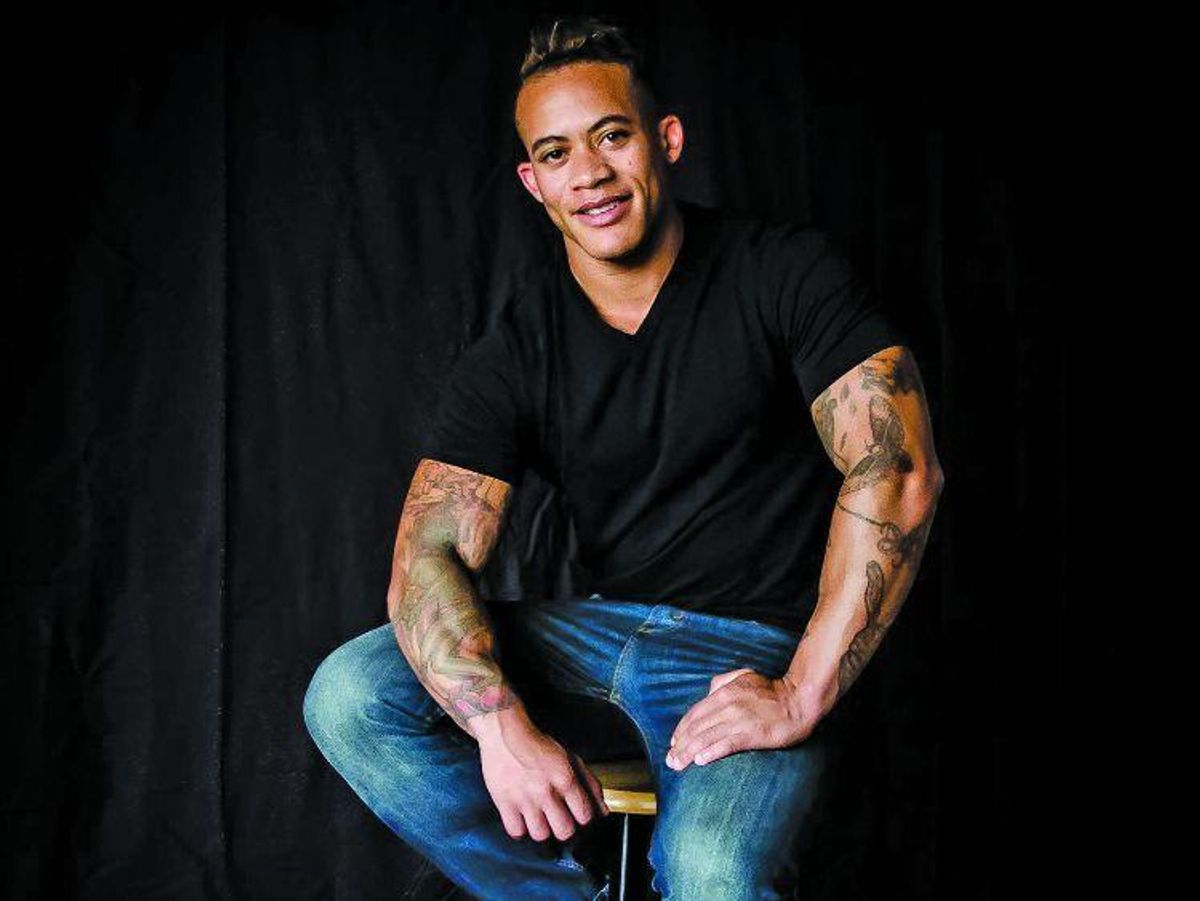News & Opinion
Shane Ortega's No-Fail Mission

How one of the the U.S. Army’s few visible and actively serving transgender soldier is risking everything in his fight to serve as the man he is.
August 12 2015 2:25 PM EST
August 13 2015 9:00 PM EST
By continuing to use our site, you agree to our Private Policy and Terms of Use.

How one of the the U.S. Army’s few visible and actively serving transgender soldier is risking everything in his fight to serve as the man he is.
U.S. Army Sgt. Shane Ortega | Photography by SSG German Sanchez, U.S. Army
Failure is never an option in the United States military, but for Sergeant Shane Ortega, one of the few visibly transgender soldiers on active duty, the price of imperfection got much higher after his transition became public.
Since enlisting in the Army in 2005, Ortega has been on over 400 combat missions in Iraq and Afghanistan, and he currently serves as a helicopter crew chief. But last summer, when medical tests highlighted Ortega's elevated testosterone levels, he was removed from flight duties. Were it not for the intervention of the American Civil Liberties Union, he would have likely been discharged altogether.
"My only saving grace was the fact that I'd been transparent in logging everything and that I'd already involved my chain of command and had everything documented up to that point," he says. "I knew at some point being in the military that this was going to happen. I'd been on testosterone for four years, and transgender people aren't allowed [to serve]. I am not by principle protected from discharge; if any commander does not want me to continue to serve, they can press the issue higher."
The Williams Institute estimates there are currently 15,000 transgender people in military service, but Pentagon rules dictate that transgender troops be discharged on medical grounds, a result of dated regulations that recognize transgenderism and transsexualism as psycho-sexual disorders.
With the help of the ACLU, Ortega presented military chiefs with a 200-page letter, detailing why he should be allowed to serve. He completed a three-day psychological evaluation to prove he didn't suffer from gender dysphoria and challenged the notion that transgender people automatically suffer from mental illness. He also ensured his physical condition is flawless, exhibiting the male standard for his age bracket.
"It's a no-fail mission. I have to be perfect," says Ortega, who's currently stationed in Hawaii on administrative duty. "The microscope of expectation is so much stronger now. I had to make internal peace with the fact that...it could really cause me to lose my job. So strategically I'm just doing little incremental things as proof."
Despite his being legally male in the civilian world, the military still sees Ortega as a woman. The outdated Defense Enrollment Eligibility Reporting System has no precedent for changing an active service member's gender marker. The only times Ortega is not presenting as male are at official occasions, when he is compelled by current regulations to wear women's "dress blues." It may be restricting for Ortega, both physically and mentally, but it hasn't impaired his pragmatism.
"I'm going to do what the Army wants me to do until that gender marker is changed," he says. "It's definitely socially awkward...the uniform doesn't fit very well. Obviously having a male frame in a female-cut uniform is difficult because the arms don't fit. But I can't challenge it until I have the political grounds. I also deeply believe in using the pillars of the chain of command and working within the existing structures."
The Pentagon has stated that its ongoing review of regulations on the labeling of transgender troops will likely last 12 to 18 months, which is when Ortega's current contract with the military expires. Depending on the outcome, it could leave him with a difficult choice.
"Ideally I'd like to serve authentically and to the best of my abilities," he says. "If I decide to re-enlist and go forward, then the Army has a position where you train new basic recruits and...I would volunteer for one of those positions. It's definitely something I'm eligible for."
Ortega is also trying to bring legislative allies on board, a move that previously helped repeal the "don't ask, don't tell" policy for gay and lesbian military personnel.
Though his activism keeps him busy, he's still found the time to sing baritone in the Gay Men's Chorus of Honolulu and begin training to participate in a men's physique contest, as the first transgender man to do so.
"I like to take calculated risks," he says. "You can go through a bit of suffering if it's beneficial to other people."
Correction: This article has been updated. Ortega is not the first serviceperson to come out as transgender while on active duty. Serveral current and former military personnel have come out as transgender.